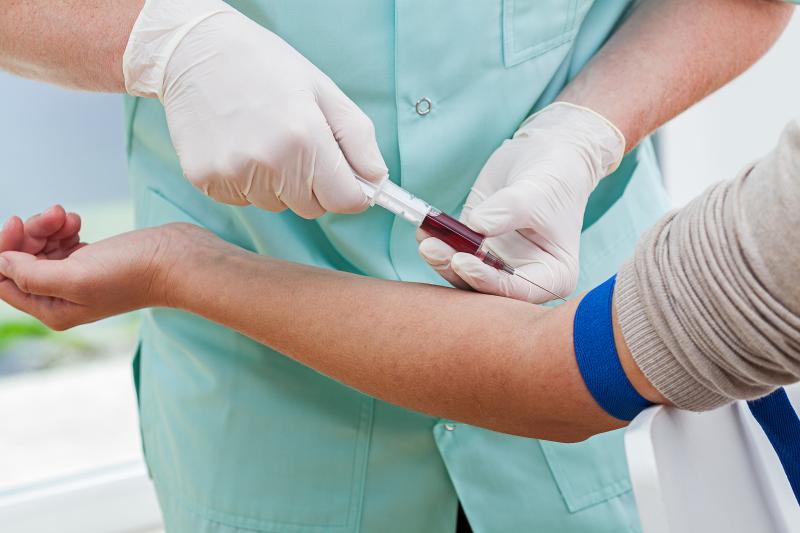
The sensitivity of blood cultures obtained shortly after initiation of antimicrobial therapy is significantly reduced among patients with severe manifestations of sepsis, a study has shown.
A total of 3,165 participants were screened, of whom 325 were included (mean age, 65.6 years; 62.8 percent men) and had repeated blood cultures drawn after antimicrobial therapy initiation (median time, 70 minutes; interquartile range, 50–110 minutes).
In 102 of 325 patients (31.4 percent), blood cultures drawn prior to antimicrobial therapy initiation were positive for ≥1 microbial pathogens. Blood cultures obtained after antimicrobial therapy initiation were positive for ≥1 microbial pathogens in 63 of 325 patients (19.4 percent). Between pre- and postantimicrobial testing, the absolute difference in the proportion of positive blood cultures was 12.0 percent (95 percent CI, 5.4–18.6 percent; p<0.001).
Postantimicrobial culture had a sensitivity of 52.9 percent (42.8–62.9 percent).
When including the results of other microbiological cultures, microbial pathogens were found in 69 of 102 patients (67.6 percent, 57.7–76.6 percent).
This patient-level, single-group, diagnostic study was conducted in seven emergency department in North America and included adults with severe manifestations of sepsis, including systolic blood pressure <90 mm Hg or a serum lactate level of ≥4 mmol/L. Blood cultures were drawn before and within 120 minutes after antimicrobial therapy initiation. Sensitivity of postantimicrobial blood cultures was measured.
The study was limited by its small sample size.
“Administering antimicrobial agents before obtaining blood cultures could potentially decrease time to treatment and improve outcomes, but it is unclear how this strategy affects diagnostic sensitivity,” the authors said.